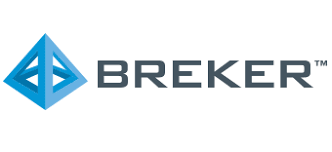Breker Verification Systems
Type: Private
Industry: Electronic Design Automation (EDA), Functional/System Verification
Founded: 2003
Headquarters: San Jose, California, United States
Founders / Key People: Adnan Hamid (President & CTO), Dave Kelf (CEO), Maheen Hamid (CFO/COO)
Employees: ~11–50 (2025 estimate) SEMI+8LinkedIn+8SemiWiki+8
🧠 Overview
Breker Verification Systems specializes in test-suite synthesis and System Verification IP (SystemVIP) based on Portable Stimulus Standard (PSS). Its solutions are designed to accelerate system-level and SoC verification across simulation, emulation, prototyping, and post-silicon platforms. Breker’s tools generate coverage-driven, self‑checking, multi-threaded test cases automatically—dramatically reducing manual effort and improving verification quality. SEMI+3LinkedIn+3SemiWiki+3
🔧 Core Products & Technology
Trek Family & Test Suite Synthesis
-
Models verification intent in PSS or native C++ and synthesizes high-coverage, multi-threaded tests.
-
Employs AI planning algorithms to explore deep state spaces and corner cases.
-
Tests are self-checking, include coverage and debug instrumentation, and are portable across verification environments. SemiWikiLinkedIn+1SemiWiki+1
SystemVIP Libraries
-
Includes pre-built libraries like CoreAssurance™ and SoCReady™ targeting RISC-V, Arm, coherency, power, security, and cache integrity. LinkedIn+2SemiWiki+2SemiWiki+2
-
Helps teams meet rigorous RISC-V certification and quality verification levels. brekersystems.com+3SemiWiki+3SemiWiki+3
Other Trek apps cover common SoC challenges including coherency, security, power/reset scenarios, and networking.
🏛️ History & Milestones
-
2003: Founded in San Jose by Adnan Hamid and Maheen Hamid.
-
2012: Raised Series A funding (~US$5 M) from Astor Capital Group. SemiWikiSemiWiki+2LinkedIn+2Tracxn+2
-
2022–2025: Launched RISC-V CoreAssurance and SoCReady SystemVIP; actively participates in RISC-V International verification efforts. LinkedIn+2SemiWiki+2SemiWiki+2
🌍 Industry & Ecosystem
Breker supports major semiconductor companies globally, including IP developers, SoC vendors, and integrators. The company is known for leadership in Accellera PSS standard development and early adoption of AI in verification workflows. Its solutions are often used to supplement UVM-based environments and extend from block-level to full system testing across multiple platforms. brekersystems.com+4LinkedIn+4SemiWiki+4
📋 Summary Table
| Category | Details |
|---|---|
| Founded | 2003 (San Jose, CA) |
| Founders / Leadership | Adnan Hamid (CTO), Maheen Hamid (COO), Dave Kelf (CEO) |
| Flagship Products | Trek Test Suite Synthesis, SystemVIP (CoreAssurance™, SoCReady™) |
| Technology Focus | AI-driven test synthesis, Portable Stimulus (PSS), system-level verification |
| Target Markets | RISC-V cores/SoCs, cache coherency, power/reset validation, security verification |
| Verification Platforms Supported | Simulation, emulation, prototyping, post-silicon |
| Industry Role | Early PSS contributor, semi‑formal AI verification solutions |
🎯 Strategic Vision
Breker aims to:
-
Automate and scale SoC-level verification using AI-driven synthesis and SystemVIP libraries for RISC‑V and Arm cores.
-
Reduce time to coverage closure and test creation effort, enabling faster tape-outs.
-
Support complex use cases like multi-core coherence, virtualization, power domains, and security validation.
-
Enable portable verification content across all verification platforms—from simulation to silicon.








Comments
There are no comments yet.
You must register or log in to view/post comments.